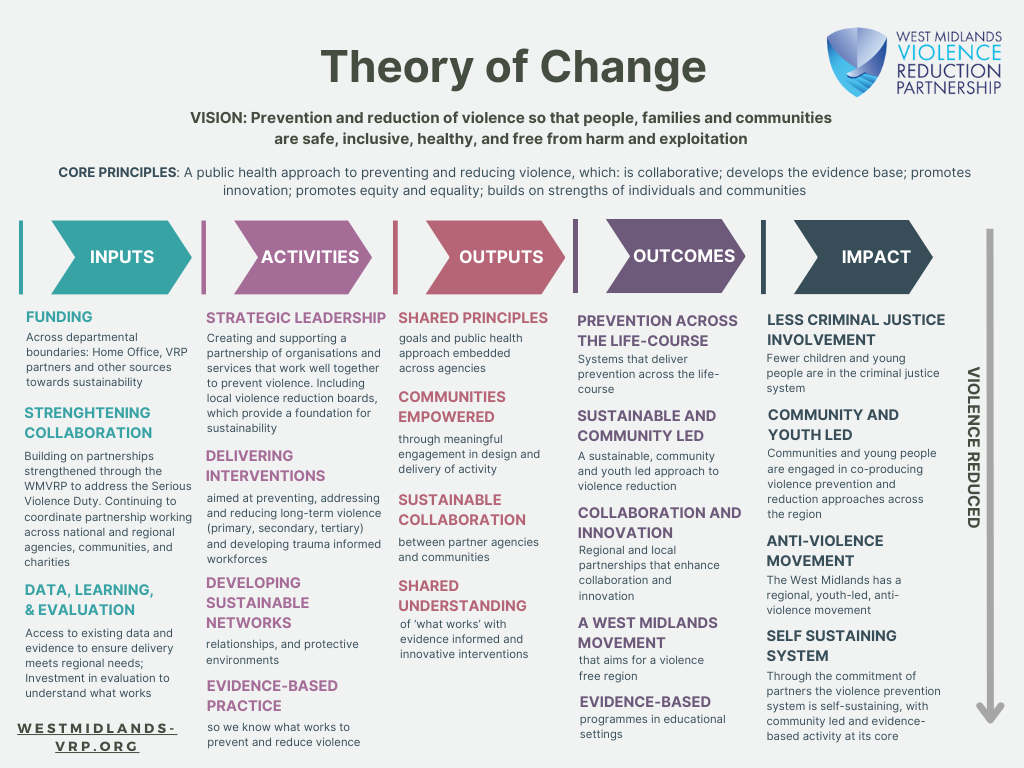The Violence Reduction Partnership aims to reduce violent crime across the West Midlands region. It benefits from the expertise of partners in public health, criminal justice, sports, education, and policing in order to take on a collaborative approach towards reducing violence.


Violence and the causes of violent acts are complex and multi-layered. Tackling the root causes is not straightforward. It takes time and cooperation between organisations with a shared will.
There is a long history of commitment to ending violence across the West Midlands. In 2015 the Violence Prevention Alliance was established. Funded by the Police and Crime Commissioner it saw Public Health England work with West Midlands Police and others to tackle the causes of violent behaviour. An acknowledgement that simply making more arrests on the streets would not solve our problem.
Then in 2019 the project received a major boost. The Home Office announced it was establishing 18 Violence Reduction Units across the country. The West Midlands was to receive £3.37 million. In October of that year the Police and Crime Commissioner and partners from across the region launched the Violence Reduction Unit (VRU), now known as the Violence Reduction Partnership (VRP). The new team brings together specialists from local government, health, education, police, and criminal justice to work alongside partner organisations and communities to reduce serious violence.
The VRP adopts a public health approach to violence. This means thinking about violence in the same way that doctors consider the spread of diseases. It means focusing on understanding the root causes of the problem and on testing, evaluating and upscaling interventions. Developing stronger data and analysis about the problem is key to working in this way.
This is an opportunity to take a longer term approach, to deliver a safer world for the next generation. Some of the VRP’s prevention activities involve the whole community and others are focused on supporting those most likely to be affected by violence. The aim is to keep people safe and free of violence in their lives.
It is intended that Violence Reduction Units and Partnerships will change systems. This means working across organisations to understand the way in which processes and approaches to issues can be improved to reduce the risk of violence.
The 5 main strands to the VRP’s work include, supporting:
- Communities and professionals to work together
- Interventions to prevent violence
- The use of evidence to inform decisions
- Leaders to connect around a shared long-term ambition
- Production of guidance, advice and toolkits
By tackling the problem in this way the VRP strives to build even more resilient and compassionate communities. It hopes it can close the cracks in the system to prevent people from falling through. It aims to ensure the violence interventions that are in place are the very best they can be. And it hopes by doing so it can encourage the whole system to work together so it can be more than the sum of its parts.
Theory of Change
A Theory of Change is a description of why a particular way of working will be effective and then demonstrates how that change will happen in practical terms. It captures the vision and core values of the VRP.


